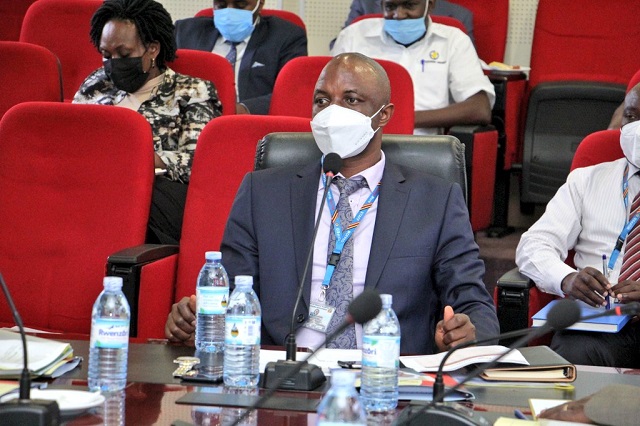
Kampala, Uganda | THE INDEPENDENT | The government will no longer give what it is calling discretionary tax relief measures to sectors or enterprises in a financial crisis as has been the case, like under the current Covid-19 pandemic.
The announcement comes as entrepreneurs continue to call on the government to waive some taxes to help the private sector survive or recover from the effects of the economic decline. The recent complaints came from the importers and traders in Kampala who wanted the government to reverse a tax policy on textile and garment imports.
The ministry on Tuesday promised the aggrieved traders a solution to their concerns within a week, which prompted them to call off their planned strike. But the Secretary to the Treasury, Ramathan Ggoobi says that such measures distort the planning and implementation of programs for the country.
He adds that although the government has previously given tax relief measures, now everything to do with relief must follow the law and not the discretion of the minister.
Ggoobi was reposing to complaints by the Small and Medium Enterprises which want the government to lift some taxes or at least reduce them until the economy fully recovers.
John Walugembe Kakungulu, the Executive Director of the Federation of Small and Medium Enterprises Uganda said with or without a pandemic, the tax rates across Uganda are very high and this is the reason why many would-be taxpayers decide to evade or avoid taxes. He says that it is one of the reasons that even attracting investors becomes hard.
Ggoobi said however that there are many ways through which the government intends to continue giving relief to the economy, but not tax relief and direct cash. He told a symposium organized by the Institute of Certified Public Accountants of Uganda, ICPAU, that one way is for the government to invest in companies.
Under this, the government through the Uganda Development Corporation, UDC, will vet companies on their viability, ability to create employment and ability to turn around their own fortunes and invest money in them. After recovery, the company will then be able to pay back the government out and this money may be used by UDC to invest in another needy company.
Ggoobi also acknowledged that Uganda’s public debt is rising fast, and pointed out that the debt-to-GDP ratio has already gone above 50 percent, which had been agreed with other countries in the region and the International Monetary Fund, as the ceiling.
Uganda’s public debt increased by 35 percent from 49 trillion in December 2019 to 65 trillion Shillings by December 2020, due to increased borrowing to respond to the COVID-19 pandemic and other natural calamities.
But Ggoobi says that over the last two years, the Uganda Revenue Authority has failed to collect more than five trillion Shillings, which meant that the government had to borrow to meet budgetary requirements. He adds that some expenses were not foreseeable and became emergencies when COVID-19 broke out, so these all had to necessitate borrowing.
Gilbert Musinguzi, the Quality Assurance Manager at Uganda Debt Network blamed the government for using debt to finance recurrent expenditure. Musinguzi recommended that the government should focus on minimizing expenditure, including implementing the planned merger of government institutions to remove duplication, control corruption and encourage public-private partnerships.
Ggoobi says the government is also looking at more ways of increasing the spending capacity of Ugandans, away from the previous measures where people were given direct relief aid like food and recently cash. One of the ways is investing in sectors like afforestation where youths will be employed by the government and paid.
He says that currently, the government has given money for road works specifically where more people can be employed in maintenance works.
*****
URN
 The Independent Uganda: You get the Truth we Pay the Price
The Independent Uganda: You get the Truth we Pay the Price





